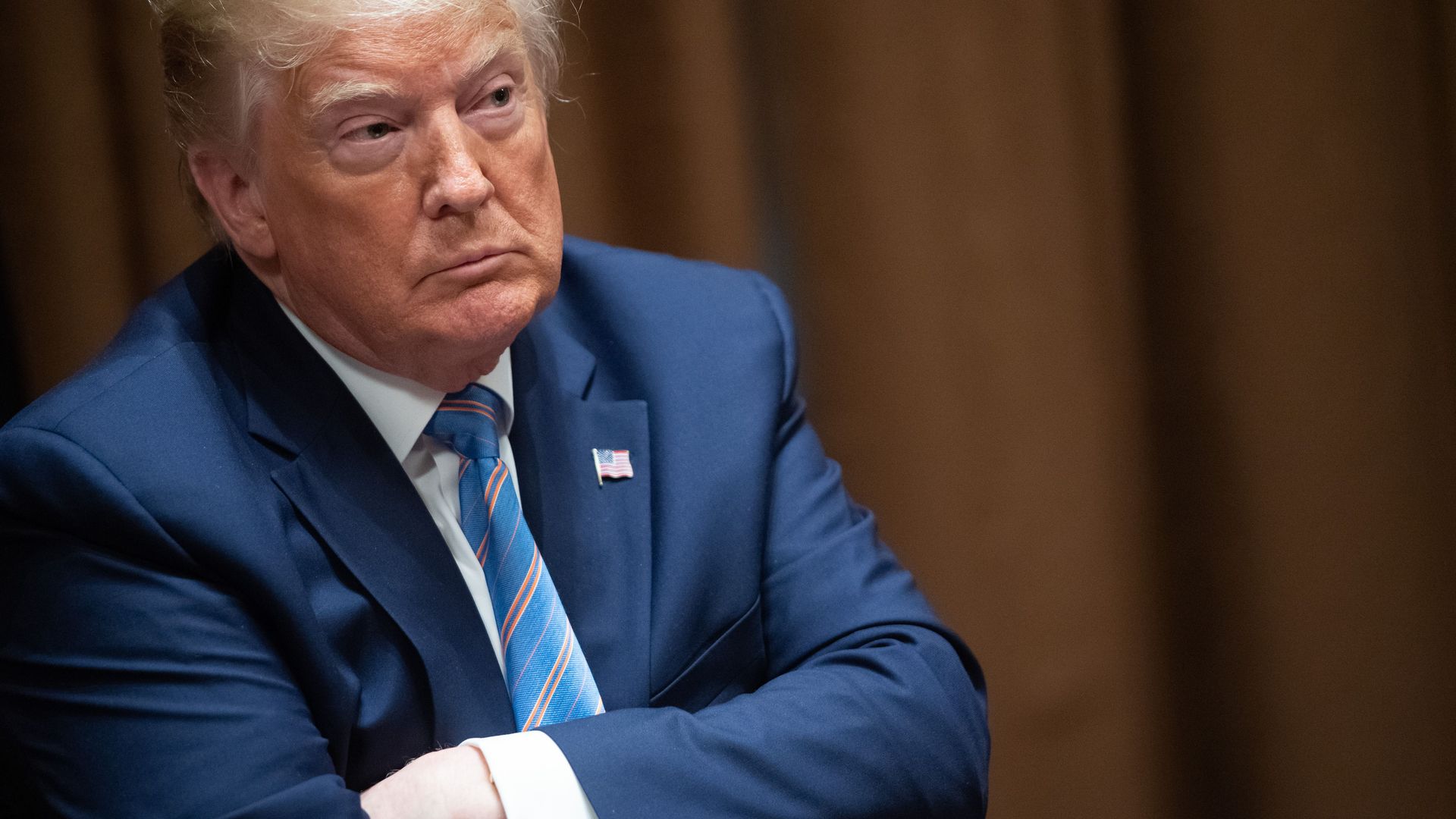Supreme Court says Manhattan prosecutors can obtain Trump's financial records
Add Axios as your preferred source to
see more of our stories on Google.

Photo: Saul Loeb/AFP via Getty Images
The Supreme Court on Thursday kept the fight over President Trump’s financial records alive, all but ensuring that those records won’t be made public before the election.
The big picture: The court ruled that presidents are not immune from investigation, denying Trump the sweeping grant of presidential power he had asked for. But the legal wrangling over Trump's records, specifically, will continue — and they may end up in the hands of Manhattan prosecutors.
Driving the news: In a pair of 7-2 rulings, the court ruled that Manhattan prosecutor Cy Vance has the legal right to subpoena records from Trump’s financial institutions, while rejecting, at least for now, the House's effort to subpoena similar records.
What they're saying: Manhattan District Attorney Cy Vance called the ruling "a tremendous victory for our nation's system of justice and its founding principle that no one — not even a president — is above the law."
- Trump tweeted soon after the rulings came down: "This is all a political prosecution. I won the Mueller Witch Hunt, and others, and now I have to keep fighting in a politically corrupt New York. Not fair to this Presidency or Administration! ... Courts in the past have given 'broad deference.' BUT NOT ME!"
These cases matter on their own, as investigations into Trump — and as guidelines for who can investigate any sitting president, and how.
- Trump had asserted total immunity, arguing that neither Vance nor House committees had any legal authority to subpoena records from his banks and accounting firms.
The court rejected that sweeping claim Thursday — a loss for Trump and the most definitive takeaway from the court’s two decisions.
- "The president is neither absolutely immune from state criminal subpoenas seeking his private papers nor entitled to a heightened standard of need," Chief Justice John Roberts wrote in the Vance case.
- But that doesn't mean Vance gets automatic access to the records he wants. The case will go back to lower courts, where Trump's lawyers can try again to fight the subpoenas. They just have to use the same arguments they’d use for a client who's not the president.
And the House will have to come up with new arguments in order to enforce its subpoenas.
- "The House's approach would leave essentially no limits on the congressional power to subpoena the President’s personal records. A limitless subpoena power could transform the established practice of the political branches and allow Congress to aggrandize itself at the President's expense," Roberts wrote.
- The court said neither side had put forward a compelling analysis of how to balance congressional subpoenas with the separation of powers, and ordered lower courts to take up that question again.
- That definitely means the House can't get Trump's records before the election, and it also leaves open the possibility of a future decision that would block congressional subpoenas like these.
The bottom line: The president isn't above investigation, but the boundaries for those investigations aren't fully defined — and you’re not going to see Trump's financial records any time soon.
Read the ruling on House Democrats' subpoena.
